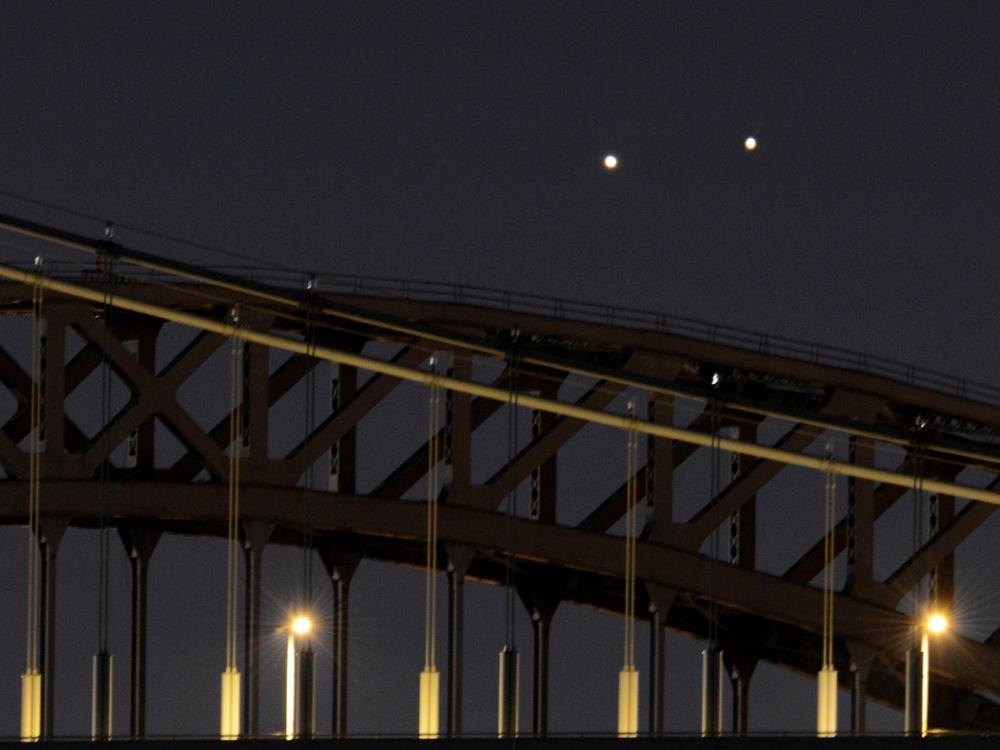Section Branding
Header Content
Look up! Venus and Jupiter are going in for a nighttime kiss
Primary Content
Last night, after dinner, I went outside to take care of our chickens. And I literally gasped. Up in the sky were two dazzlingly bright objects close to each other. It was a beautiful, extraordinary sight. I felt a tingle of joy and a moment of calm. I felt what psychologists call awe – an emotion that can relieve stress and calm nerves. Who doesn't need that?
And tonight is going to be an even better night to experience this awe. So, after sunset I'm taking my entire family outside to feel this warm and lovely feeling of awe. Because these two bright objects – the planets Venus and Jupiter – will be even closer.
"They've been coming in closer and closer for a little nighttime kiss," says Jackie Faherty, who's an astronomer at the American Museum of Natural History.
Of course in space the planets aren't really going to smooch. "They are actually 400 million miles apart," Faherty says. That's more than four times the distance than we are from the sun.
What is happening is a Venus-Jupiter "conjunction" — that's what astronomers call it. "Venus is passing Jupiter as they both orbit the sun," Faherty explains. "The inner planets move a lot faster than the outer planets. So you get a lot of these like racetrack passes," she says.
So, as the orbits pass, they'll appear to be about .5 degrees apart from our earthly vantage point. That means, the two planets will be separated by the width of a pencil eraser held up at arms' length in the sky.
To see this beautiful event, go outside as darkness falls and look west toward the sunset. "There is no way that you'll miss these two bright lights in the sky," says Diana Hannikainen, who's an editor at Sky & Telescope magazine. "Venus is definitely brighter and is the rightmost one. Jupiter is the leftmost one."
And while you're looking up, try something new. Pause for a moment and focus on how extraordinary the universe is. How far away these planets are. How mysterious they are. And how small you are.
"Look at that sky and think, 'Wow! That's big," says psychologist Michelle Shiota at Arizona State University. "That's so much bigger than me. That's so much bigger than my life and my problems. However real those problems are."
That's the feeling of awe, Shiota says, which can give us perspective and be humbling. "And it seems to just help us calm down a little bit in a powerful way."
If you miss the event tonight, check back on Thursday night. The two planets will still seem quite close, continuing their celestial dance. But soon, they'll go back to arms length.
Copyright 2023 NPR. To see more, visit https://www.npr.org.

